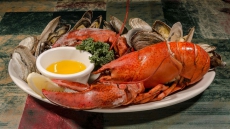A study published in journal Nature by researchers at Scripps Research Institute, the International AIDS Vaccine Initiative (IAVI) and Texas A&M University has found that cows hold the clue to HIV cure.
The researchers were able to induce potent antibodies against HIV in cows. Cows never get infected by HIV. Their immune systems produce unique antibodies against infections.
As part of the research, the scientists injected four calves with HIV immunogens, reports the Time.com. The researchers discovered that the cows quickly developed bNAbs, or a neutralising antibody that defends a cell from an antigen or infectious body by neutralizing any effect it has biologically, to HIV in their blood.
An immunogen is any antigen capable of inducing humoral and/or cell-mediated immune response instead of immunological response.
The scientists were pleasantly shocked by the unique discovery. “I was shocked,” TIME quoted study author Devin Sok as saying. He said that the calves developed responses against HIV at an unanticipated speed. Not only this, the scientists were also able to isolate the antibodies from the calves and they identified “NC-Cow 1” as the most powerful antibody attacking the HIV.

Cows cannot be infected with HIV, of course. But these findings illuminate a new goal for HIV vaccine researchers: by increasing the number of human antibodies with long loops, we might have an easier chance of eliciting protective bnAbs by vaccination," the researchers noted.
While no one knows definitively why these powerful antibodies evolved in cattle, one theory holds that the key could be in long loops of bNAbs, called HCDR3, which are tied to the animals’ extensive gastrointestinal systems. The researchers note that a promising approach to HIV vaccine development may be to promote the human immune system’s development of long HCDR3 loops.
“HIV is a human virus,” said Devin Sok, a study leader and Antibody Discovery and Development Director at IAVI, “but researchers can certainly learn from immune responses across the animal kingdom.”

Scientists have so far been unable to develop a vaccine against HIV. After this study, the researchers are hopeful of applying their finding on humans.






